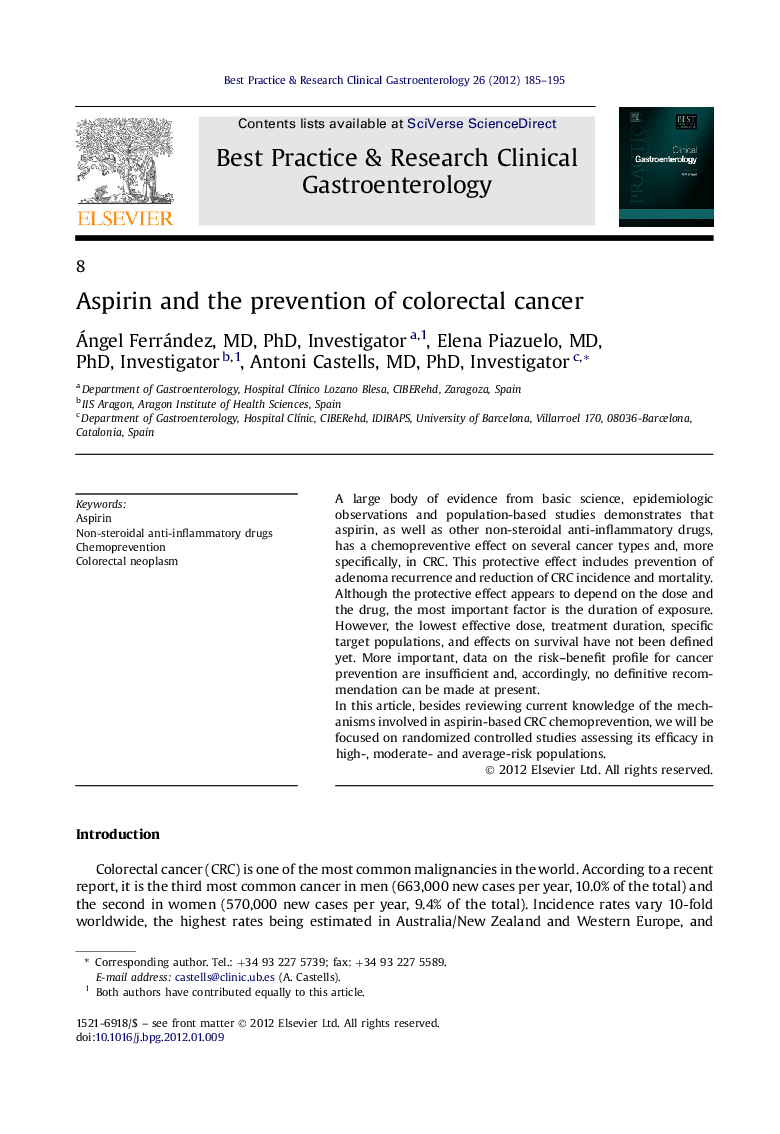| Article ID | Journal | Published Year | Pages | File Type |
|---|---|---|---|---|
| 3254650 | Best Practice & Research Clinical Gastroenterology | 2012 | 11 Pages |
A large body of evidence from basic science, epidemiologic observations and population-based studies demonstrates that aspirin, as well as other non-steroidal anti-inflammatory drugs, has a chemopreventive effect on several cancer types and, more specifically, in CRC. This protective effect includes prevention of adenoma recurrence and reduction of CRC incidence and mortality. Although the protective effect appears to depend on the dose and the drug, the most important factor is the duration of exposure. However, the lowest effective dose, treatment duration, specific target populations, and effects on survival have not been defined yet. More important, data on the risk–benefit profile for cancer prevention are insufficient and, accordingly, no definitive recommendation can be made at present.In this article, besides reviewing current knowledge of the mechanisms involved in aspirin-based CRC chemoprevention, we will be focused on randomized controlled studies assessing its efficacy in high-, moderate- and average-risk populations.
